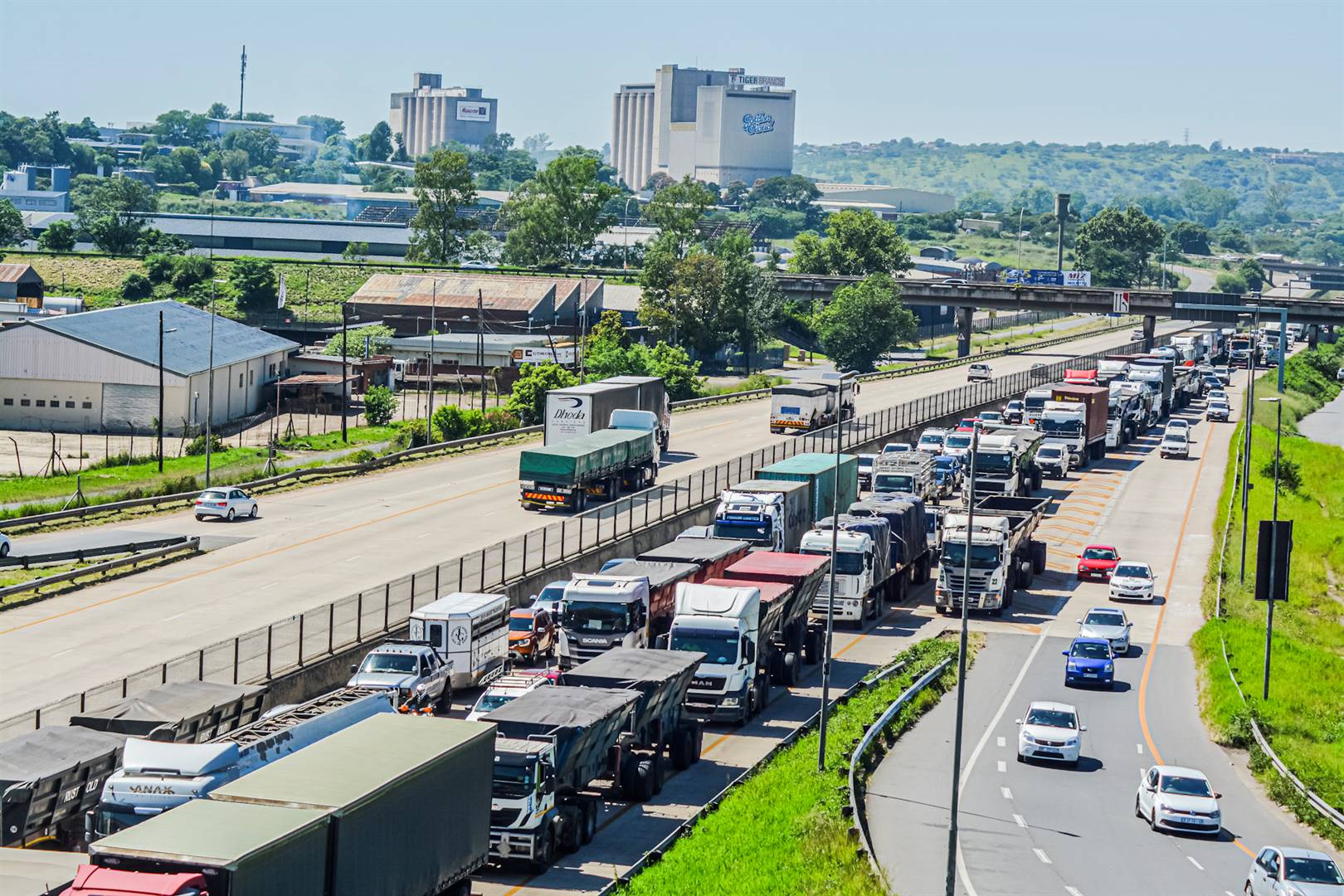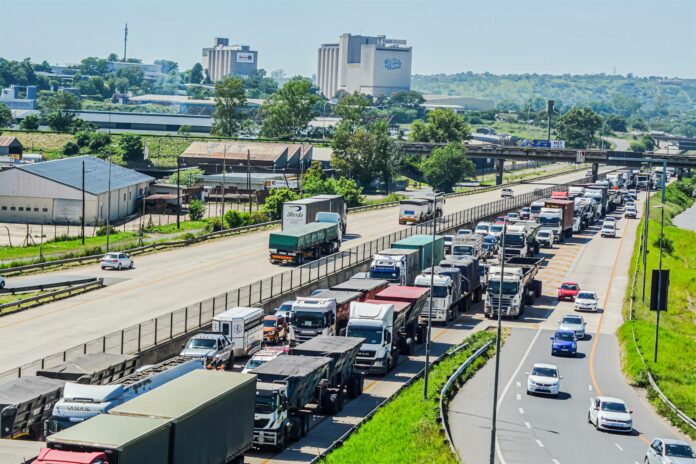[ad_1]

Trucks on Pietermaritzburg N3.
- The Road Freight Association says small businesses have been hit the hardest by the latest road blockades.
- The association warns that the logistical delays caused by the blockages could impact trade.
- The drivers have labelled the strike a success, saying the government has been forced to look into their grievances.
The economic impact of the recent blockade of major road freight routes by striking truck drivers has intensified calls by various business sectors for the government to address the matter, with the cost of the delays estimated to run into millions.
Organised business has raised its voice against the disruptions that impacted the movement of goods along the N17, N3, N11, N2, R59, and R74 between Tuesday and Thursday.
The strike – which has ended – resulted in gridlocked traffic and delays on major arteries of the economy.
About 80% of South Africa’s goods are carried by road, according to the Road Freight Association (RFA), which has estimated that the compounded damage to the economy as a result disruptions could be around R300 million.
In a letter to President Cyril Ramaphosa, Gavin Kelly, the CEO of RFA, called for decisive government intervention to end the continued disruptions of trucking operations, saying the blockade put the whole logistics supply chain under attack. The association has joined Business Association of South Africa (BASA) in describing the strike as an act of “economic sabotage”.
“The economic impact, initially felt by all transporters stuck on the various routes, is not only enormous – we have already lost around R25 million in truck-operating costs – but will cripple many of our smaller operators,” said Kelly.
Some of the costs incurred by truck company operators, including small businesses who make 88% of the Road Freight Association, will result in penalties for late delivery, damaged goods and contract breach. However, the impact of the disruptions, if not curbed, could be more severe.
“We will lose trade and business to and through South Africa. Our ports will become ghost towns – and the surrounding businesses relating to those activities of trade and support will close,” the association warned in an open letter to Ramaphosa.
“When you add up all the damage and negative costs into the economy, we are well around R300 million already,” it said.
Lorry drivers across the country embarked on a strike from Tuesday, in what they say was a cry against the long-standing issue of the employment of foreign nationals in the trucking sector, who appear to be favoured by employers who pay them lower wages.
The employment of foreign national is an emotive issue in a country with a 34.5% jobless rate.
A win for workers
“The real people who are sabotaging the economy are the employers,” said Sifiso Nyathi, secretary of the All Truck Drivers Forum and Allied South Africa.
Nyathi called the three-day strike a success, saying it forced the government to bring the employment issue back on the table, after years of “fruitless engagements”. He stated that all routes that had been blocked since Tuesday were not open. A blockade on the N3 lasted 24 hours before police could disperse the drivers on Thursday evening.
“The strike has been a big win for us. It was not violent, the drivers embarked on a strike as a last resort. The government needs to put an end to the practice of giving jobs to foreign nationals, when many of us are sitting at home without employment.”
On the other hand, the Road Freight Association calls for action against companies that continue to break the law by employing foreigners “without the correct authorisations and refuse to register or submit to the inspections done by the Department of Employment and Labour”.
Addressing the issue of the employment of foreign nationals requires the involvement of labour, transport, and home affairs departments, and the three sectors of government have been mandated by the president to address the matter.
“The challenges facing the trucking industry are diverse and go beyond just the transport sector. We are opening space for engagement,” he said, adding that the issues raised by the drivers were to a certain extent valid.
The latest disruption of road freight logistics follows the July 2021 riotings, where trucks along the N3 were torched and robbed by communities during protests linked to former president Jacob Zuma’s incarceration.
Get the biggest business stories emailed to you every weekday.
Go to the Fin24 front page.
[ad_2]
Source link







